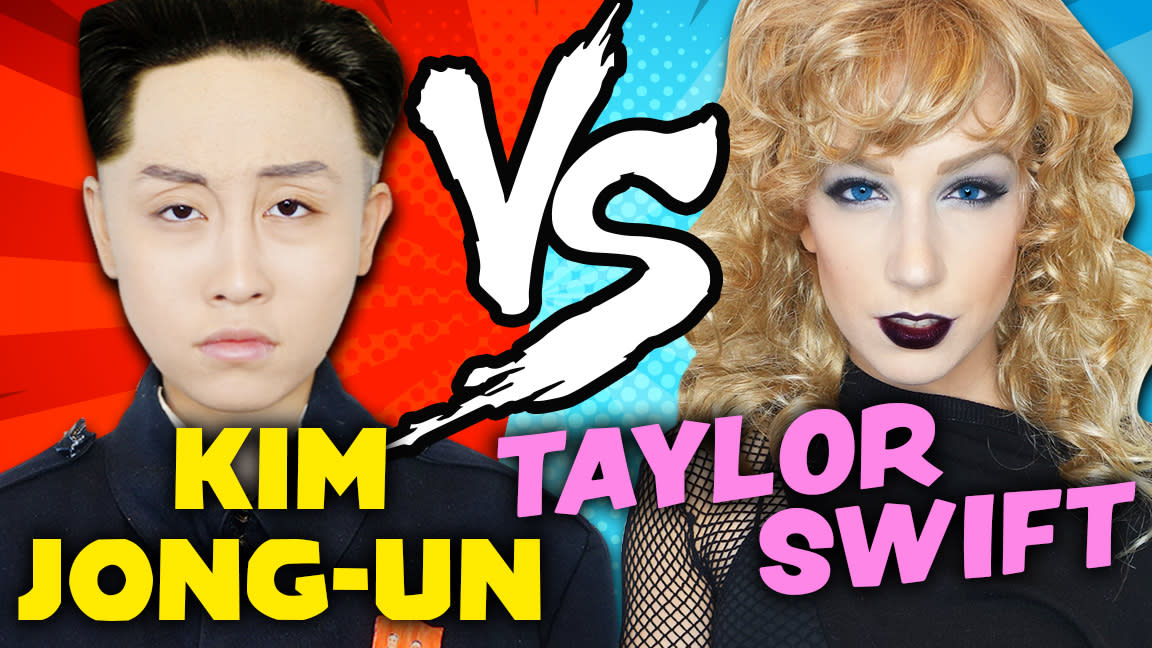Throughout history, certain individuals have become notorious for their actions, decisions, or ideologies, earning them a reputation as some of the most hated people in the world. The question "Who is the most hated person in the world?" is complex and subjective, as it depends on cultural, political, and historical contexts. However, understanding the reasons behind this hatred can offer valuable insights into human psychology and societal values.
While the concept of hate varies across regions and communities, certain figures have consistently sparked global outrage. This article explores the lives, actions, and controversies surrounding these individuals, shedding light on why they have become so despised by many. By analyzing their biographies, ideologies, and impact, we aim to provide a comprehensive understanding of this polarizing topic.
It is important to approach this subject with an open mind and critical thinking. Hate is a powerful emotion, often fueled by misinformation or bias. This article seeks to provide factual information and encourage readers to form their own opinions based on evidence and analysis. Let us begin by examining the most controversial figures in modern history and the reasons behind their infamy.
Read also:The Ultimate Guide To Hydroxyapatite Toothpaste Benefits Usage And More
Table of Contents
- Biography of the Most Hated People
- Historical Context of Hate
- Controversial Political Figures
- Infamous Criminal Minds
- Hated Media Personalities
- Religious Leaders and Hate
- Psychological Aspects of Hate
- The Role of Media in Shaping Hate
- Societal Impact of Hate
- Conclusion: Understanding Hate and Moving Forward
Biography of the Most Hated People
Who Are the Most Hated People in History?
Before delving into the reasons behind their infamy, it is essential to understand the backgrounds of the most hated people in history. Below is a brief overview of their lives, presented in a table format:
| Name | Birth Date | Death Date | Nationality | Notable Actions |
|---|---|---|---|---|
| Adolf Hitler | April 20, 1889 | April 30, 1945 | German | Leader of Nazi Germany, responsible for the Holocaust |
| Joseph Stalin | December 18, 1878 | March 5, 1953 | Georgian/Soviet | Dictator of the Soviet Union, responsible for mass purges |
| Osama bin Laden | March 10, 1957 | May 2, 2011 | Saudi Arabian | Founder of al-Qaeda, mastermind behind the 9/11 attacks |
These individuals have left indelible marks on history, often associated with violence, oppression, and suffering. Their actions have shaped the world in ways that continue to resonate today.
Historical Context of Hate
Hate is not a new phenomenon; it has existed throughout human history. Understanding its historical context can help explain why certain figures are despised more than others. Factors such as war, ideology, and propaganda play significant roles in shaping public perception.
How Historical Events Shape Hate
Wars, revolutions, and political upheavals often give rise to hatred towards specific individuals or groups. For instance, Adolf Hitler's rise to power during World War II led to the Holocaust, one of the darkest chapters in human history. Similarly, Joseph Stalin's regime in the Soviet Union resulted in millions of deaths due to forced labor, famine, and executions.
These historical events not only define the individuals involved but also shape the collective memory of nations. The legacy of hate persists through generations, influencing how people view these figures today.
Controversial Political Figures
Politics has always been a fertile ground for controversy and division. Certain political leaders have become synonymous with hate due to their policies, ideologies, or actions. Below are some examples:
Read also:Understanding The Essence Of Liberalism What Is A Liberal
- Adolf Hitler: Responsible for the deaths of six million Jews during the Holocaust
- Joseph Stalin: Oversaw the Great Purge, resulting in the deaths of millions of innocent people
- Saddam Hussein: Former President of Iraq, known for his brutal dictatorship and use of chemical weapons
These leaders' actions have left lasting scars on their nations and the world, making them some of the most hated figures in history.
Infamous Criminal Minds
Beyond politics, certain criminals have gained notoriety for their heinous acts. Serial killers, terrorists, and organized crime leaders often evoke intense hatred from the public. Below are some of the most infamous criminal minds:
Serial Killers Who Shocked the World
Serial killers like Ted Bundy, Jeffrey Dahmer, and Charles Manson have captured the public's imagination with their grotesque crimes. Their ability to deceive and manipulate victims has made them some of the most hated individuals in modern history.
Statistics show that between 1970 and 2000, over 2,000 serial killers were active in the United States alone, according to the FBI. These crimes have a profound impact on communities, leaving lasting trauma and fear.
Hated Media Personalities
In the age of mass media, certain personalities have become lightning rods for public anger. Celebrities, journalists, and influencers often face criticism for their behavior, statements, or lifestyles. Below are some examples:
- Donald Trump: Polarizing former U.S. President, often criticized for his divisive rhetoric
- Kim Kardashian: Reality TV star and businesswoman, criticized for her lavish lifestyle and perceived lack of authenticity
- Alex Jones: Conspiracy theorist and media personality, infamous for spreading misinformation
While opinions on these figures vary, their influence on public discourse cannot be ignored. The media plays a crucial role in shaping how people perceive them, often amplifying their controversial aspects.
Religious Leaders and Hate
Religion has been both a source of inspiration and division throughout history. Certain religious leaders have become hated figures due to their extremist views or actions. Below are some examples:
- Osama bin Laden: Founder of al-Qaeda, responsible for the 9/11 attacks
- Jim Jones: Leader of the Peoples Temple, infamous for the Jonestown massacre
- David Koresh: Leader of the Branch Davidians, involved in the Waco siege
These leaders' ideologies have led to devastating consequences, causing loss of life and suffering for countless individuals. Their actions have tarnished the perception of religion for many, highlighting the dangers of extremism.
Psychological Aspects of Hate
Hate is a complex emotion influenced by various psychological factors. Understanding its roots can help explain why certain individuals become targets of public anger. Below are some key aspects:
- Cognitive biases: People tend to focus on negative traits or actions, ignoring positive aspects
- Group dynamics: Hate often stems from perceived threats to one's identity or community
- Media influence: Sensationalized reporting can amplify negative perceptions
By examining these factors, we can gain a deeper understanding of why certain figures are despised by so many.
The Role of Media in Shaping Hate
The media plays a pivotal role in shaping public perception and influencing opinions. Through news coverage, social media, and entertainment, the media can amplify or mitigate feelings of hate towards specific individuals. Below are some examples:
Social Media and Hate Speech
Platforms like Twitter, Facebook, and Instagram have become breeding grounds for hate speech and misinformation. Studies show that exposure to negative content can increase feelings of anger and resentment towards certain groups or individuals.
However, the media also has the power to promote understanding and empathy. By highlighting diverse perspectives and encouraging dialogue, it can help bridge divides and reduce hate.
Societal Impact of Hate
Hate has far-reaching consequences that affect individuals, communities, and entire nations. Below are some of the societal impacts:
- Increased polarization: Hate fuels division and animosity between groups
- Psychological harm: Exposure to hate can lead to anxiety, depression, and trauma
- Economic consequences: Hate crimes and discrimination can hinder economic growth and development
Addressing hate requires collective effort and commitment from all sectors of society. Education, dialogue, and empathy are key to fostering understanding and reducing conflict.
Conclusion: Understanding Hate and Moving Forward
In conclusion, the question "Who is the most hated person in the world?" is multifaceted and depends on various factors. By examining the lives, actions, and ideologies of controversial figures, we can gain a deeper understanding of why they evoke such strong emotions. However, it is important to approach this subject with critical thinking and empathy.
We invite readers to reflect on their own biases and prejudices, challenging themselves to seek truth and understanding. Share your thoughts in the comments below and explore other articles on our site to continue learning about this important topic. Together, we can work towards a more compassionate and inclusive world.


